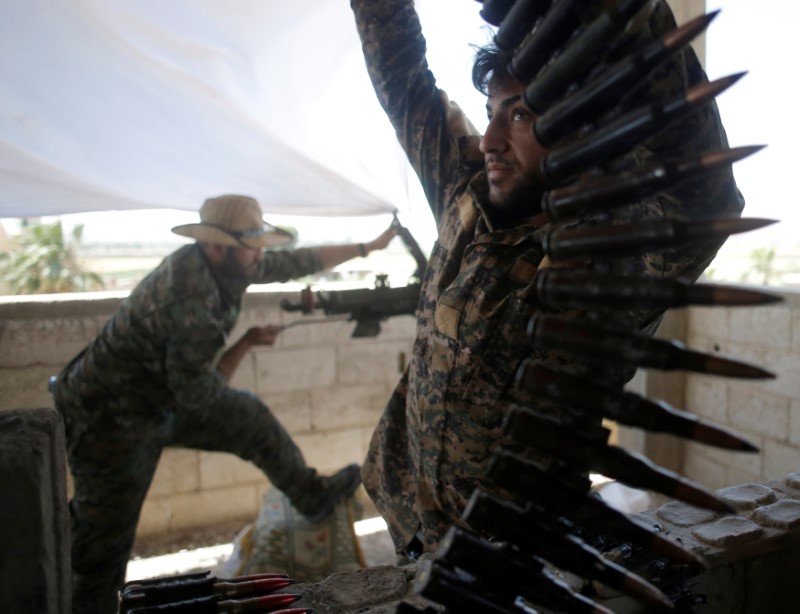By Phil Stewart
MUNICH (Reuters) - U.S. Defense Secretary Jim Mattis on Tuesday left open the possibility of longer-term assistance to Kurdish YPG militia in Syria, saying the U.S. may need to supply them weapons and equipment even after the capture of Raqqa from Islamic State.
NATO ally Turkey, which views the YPG as a threat, has said Mattis assured it in a letter that the United States would eventually take back the weapons it was giving them once Islamic State was defeated.
Mattis, in his first public remarks on the issue, did not directly dispute that account.
"We'll do what we can," Mattis told reporters during his flight to Germany, when asked about weapons recovery.
But Mattis also noted that YPG fighters were well-armed even before the U.S. last month decided to offer more specialized equipment for its urban assault on Islamic State-held city of Raqqa.
Mattis also said the battle against Islamic State would continue even after Raqqa was captured and focused his answers about U.S. weapons' recovery on items he believed the YPG would no longer need in battle.
Asked if Kurdish militia would revert to their pre-Raqqa level of armaments once the fight was over, Mattis responded: "Well, we'll see. It depends what the next mission is. I mean, it's not like the fight's over when Raqqa's over."
Turkey sees the YPG as an extension of the outlawed Kurdish
PKK, which has been waging an insurgency in the country's southeast since the mid-1980s. It has said supplies to the YPG have in the past ended up in PKK hands, describing any weapons given to the force as a threat to its security.
The U.S., however, sees the YPG as an essential ally in the campaign to defeat Islamic State in Raqqa, the jihadists' main urban base in Syria.
Mattis will meet his Turkish counterpart, Defence Minister Fikri Isik, on Thursday in Brussels.
The U.S., Mattis said, in the near-term would be recovering weapons that the group does not need anymore as the battle advances.

"We'll be recovering (the weapons) during the battle, repairing them. When they don't need certain things anymore, we'll replace those with something they do need," Mattis said.